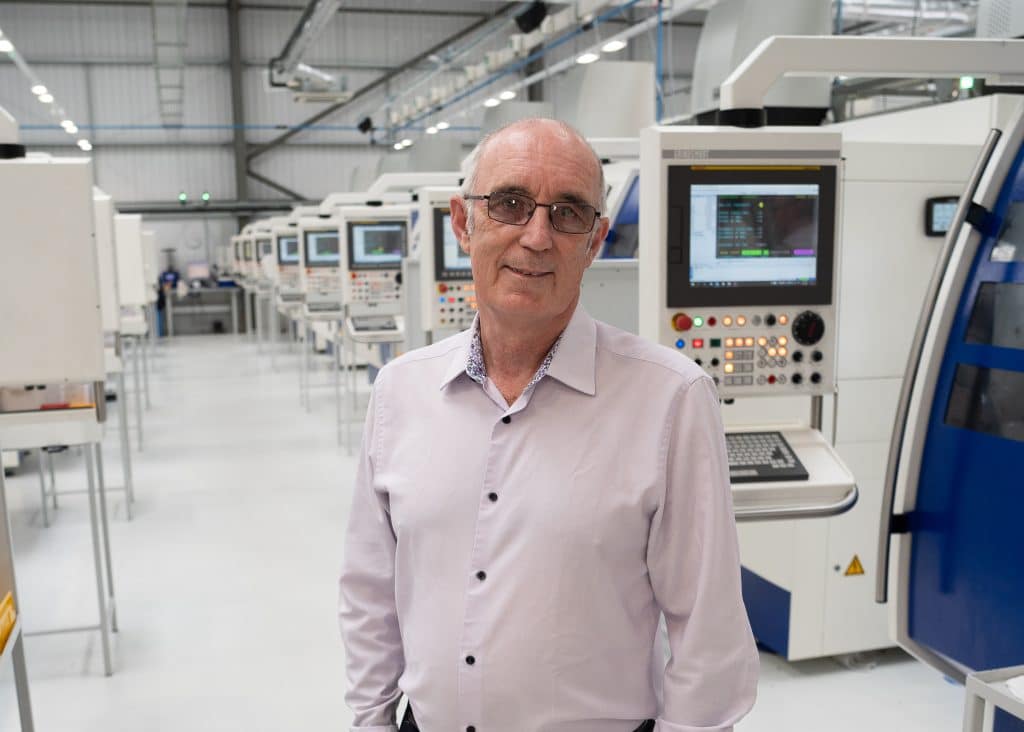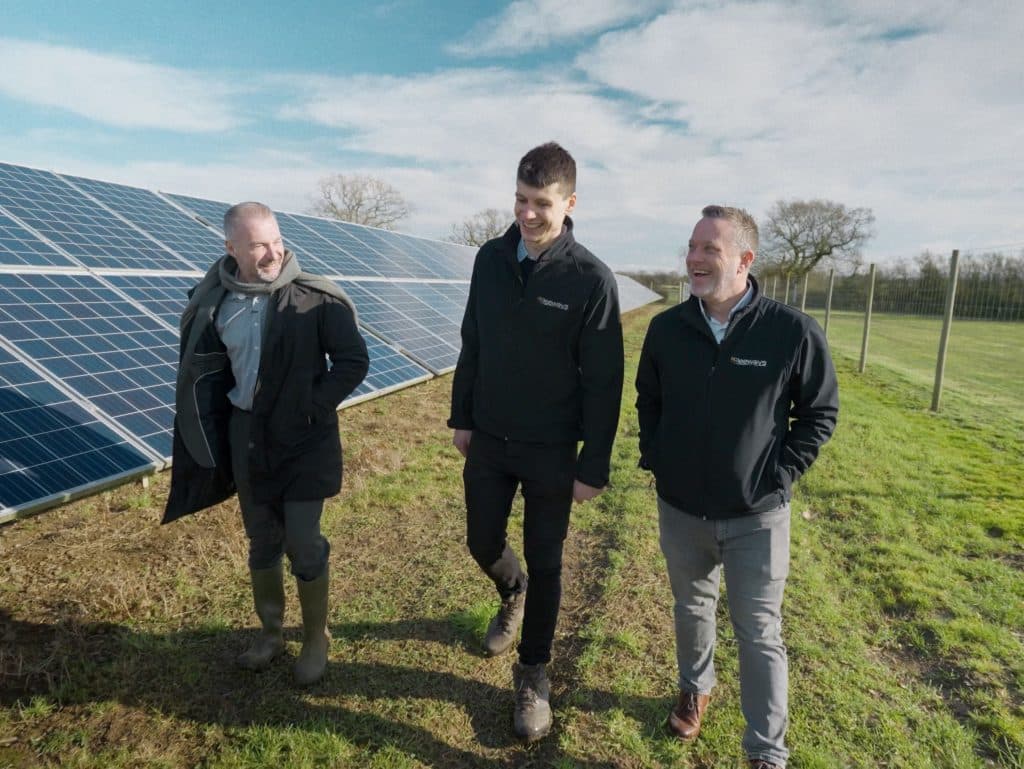The scale and urgency of the sustainability challenges we face mean that having a future-fit strategy is vital. These strategies must also be able to support the transformational change needed, both in how your organisation operates and its wider operating context.
By 2030, organisations must move well beyond the idea of ‘doing less harm’ to embrace regenerative and net positive approaches. In order to meet the challenges we face, we all need to be putting back more into society, the environment and economy than we take out. It means tackling structural inequalities in your sector and moving towards more resilient business models.
‘Sustainability is a dynamic process which enables all people to realise their potential and to improve their quality of life in ways that simultaneously protect and enhance the Earth’s life support system.’ Forum for the Future
We brought together speakers to look at Sustainability from different perspectives:
- Jonathon Porritt – Founder of Forum for the Future; author of 9 books; environmental campaigner and speaker
- Juliet Davenport – CEO of Good Energy, a 100% renewal energy provider
- John-Henry Looney – Founder Sustainable Direction
- Caroline Aistrop – Creative Director Green Spark Marketing & PR
- Colin Curtis – Founder Support the Goals
Jonathon Porritt – Founder of Forum for the Future; author of 9 books; environmental campaigner and speaker; Chancellor Keel University and NED Willmott Dixon
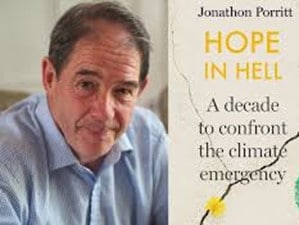
After nearly 50 years of non-stop activism and advocating both for environmental sustainability and for social justice, Jonathon is more persuaded now than ever that this is our time. But, there are some very turbulent times ahead!’
His book Hope for Tomorrow is as the title suggest as hopeful look at what we can do to make the changes necessary, it’s always an interesting and thought-provoking session with Jonathon as he challenges us all to do more and do better.
Jonathon started by providing an update on some of the positive changes he was seeing. He was very positive about the re-emergence of the USA as a big player on the global stage and the contrast between the two administrations – this has been a huge impact. Biden/Harris have moved fast and put together the most high-powered team we have ever seen lead by John Kerry. The £1.9trillion announced in recovery act which is full if things on sustainability, e.g. £30bn on restoring their degraded infrastructure. This is all-good news. Not much positive news happening in China as they still look to drive for 5% growth and the energy needed to fuel that growth is huge! EU came up with Green Deal supporting countries to get out of coal as fast as possible. António Guterres, Secretary-General of the United Nation said we have crunched the numbers and the bad news is that taking all of the countries commitment will give us a 1% reduction by 2030. At least it’s a reduction not an increase but we need more like 40-50% reduction! Very stark story and countries need to step up and make bigger changes.
Next good news is technology, and the technology story gets better. If you had said a few years ago that 40% of our energy would come from renewables you would not have been thought of as very unreliable! So, to get to 40% at the end of 2020 is remarkable, and the UK is doing incredibly well in this area and it’s a boomtime for wind technology sector – one of the greatest industry growth stories for the next 10 years.
However, we need to manage the fall-out. The internal combustion engine is on death row and we have 10,000’s of people involved in maintaining vehicles etc. far few people will be needed, and we need to work through this socio-economic impact.
2020 saw many corporates stepping up in 2020 and it wasn’t the disaster year people thought it might be due to COVID. In fact, many more companies stepped up to declare their own net zero targets. Big car manufactures coming out of petrol engines by 2035/2040 which will drive change through their huge supply chains. Unilever’s Board announcing in December 2020 its intention to put their Climate Transition Action Plan before shareholders looking to achieve zero emissions from their operations by 2030, and net zero across our value chain by: https://www.unilever.com/Images/unilever-climate-transition-action-plan-19032021_tcm244-560179_en.pdf
On the less positive side Jonathan talked about the UK government as frustrating at the moment with little coordination and seems like disrespectful policy making from the current government.
Listen to Jonathon’s Talk:
Juliet Davenport – Founder & CEO Good Energy

For more than 20 years, Good Energy’s mission has been to power a cleaner, greener world When CEO Juliet Davenport founded Good Energy in 1999, they were the UK’s first 100% renewable electricity supplier. Juliet wanted to create a way for people and businesses to be part of the solution to climate change. We were delighted as always to welcome Juliet Davenport from Good Energy to talk about the energy situation within the UK.
Juliet started with ‘What do we need to do to get it right’?
Net Zero has 5 pillars:
- Research and innovation – we need new technology coming
- Infrastructure – a high carbon infrastructure and we haven’t had to fully insulate our houses as we have temperate climate and we have had an abundance of fossil fuels.
- Regulation & Policy
- The Consumer – need to understand the consumer as they are more knowledgeable and have more power in their own hand
- People/Young people – need right skill sets and shift away from more traditional industries
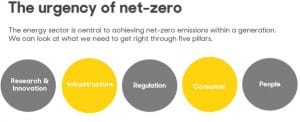
Need to accelerate all of these things so across all government departments; all sectors and across societal groups, it will not be fixed in one place.
R&D spending as predominately been spent on health & pharmaceuticals £4.5bn; automotive £3.8bn and aerospace £1.7bn but energy is the poor cousin at £0.2bn and there needs to be more investment and SME’s need to be more involved in the R&D as small companies can be more agile and innovative; they are fast learners and fast failers. Need to see a different infrastructure around R&D and invest in the world you want to see.
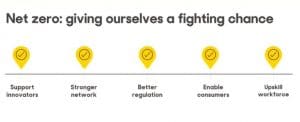
Gas is in 80% of peoples homes and a lot of the Green Subsidy is on the electric bill and not on the gas bill so its not equitable and its hard to get people to shift.
In 2002 there were only about 1000 renewal generators on the system we have over 1 million now and it will be a very dynamic infrastructure as electric cars rollout with over 500,000 electric cars on the road at the moment and these cars we will be able to put energy back onto the grid and this will transform the way we manage the grid.
Trying to protect the green consumer is important and make sure they get what they think they are buying.
70% of UK teachers said they did not have the knowledge to teach on climate change. We should be empowering our kids about what they can do to and teaching the next set of green skills.
Listen to all of Juliet’s presentation:
Reading List & Useful Links
Jonathon Porritt – Hope In Hell
Naomi Klein – This Changes Everything
Kate Raworth – Doughnut Economics: Seven Ways to Think Like a 21st-Century Economist
Bill Gates – How to Avoid a Climate Disaster: The Solutions We Have and the Breakthroughs
Understand more about B Corps – https://bcorporation.uk/
Forum for the Future – https://www.forumforthefuture.org/



